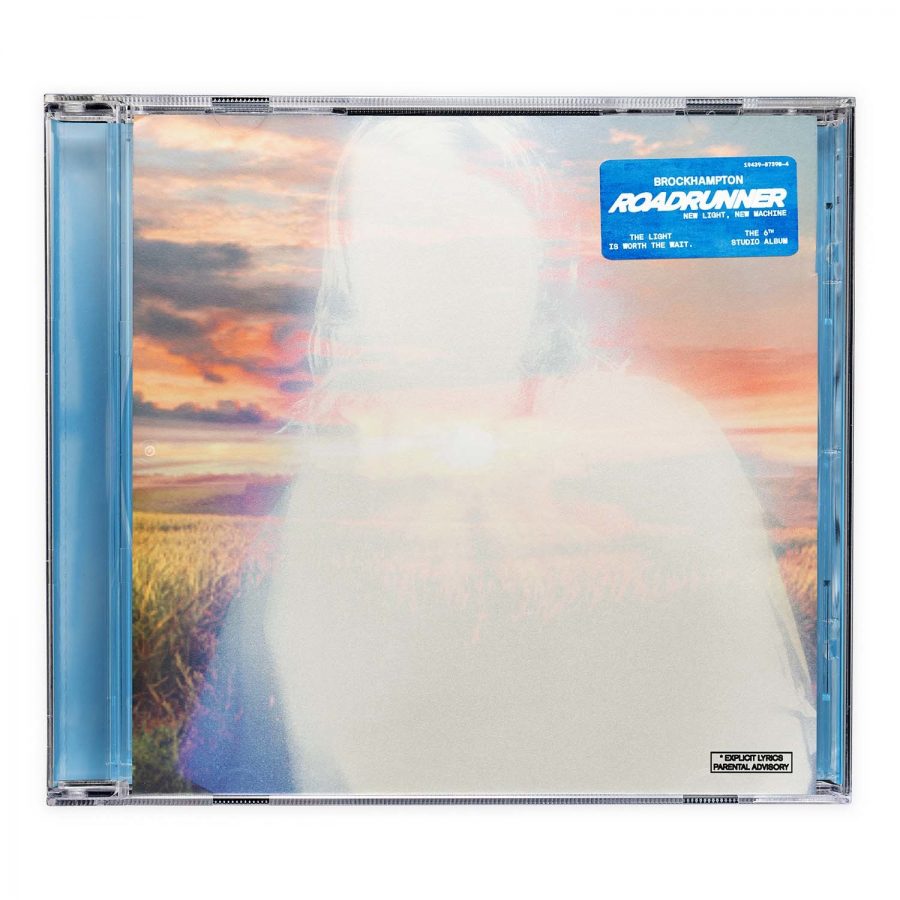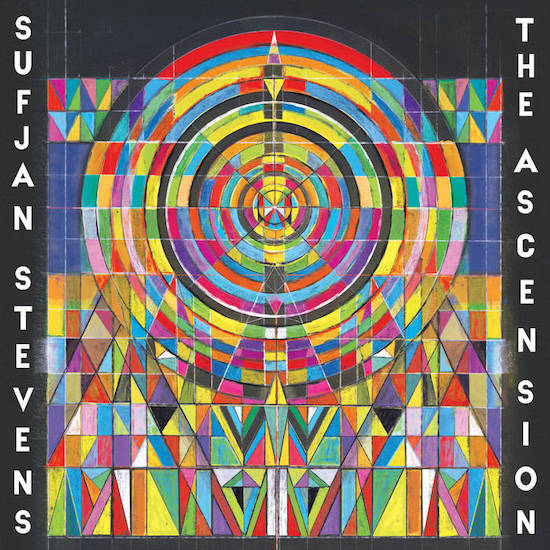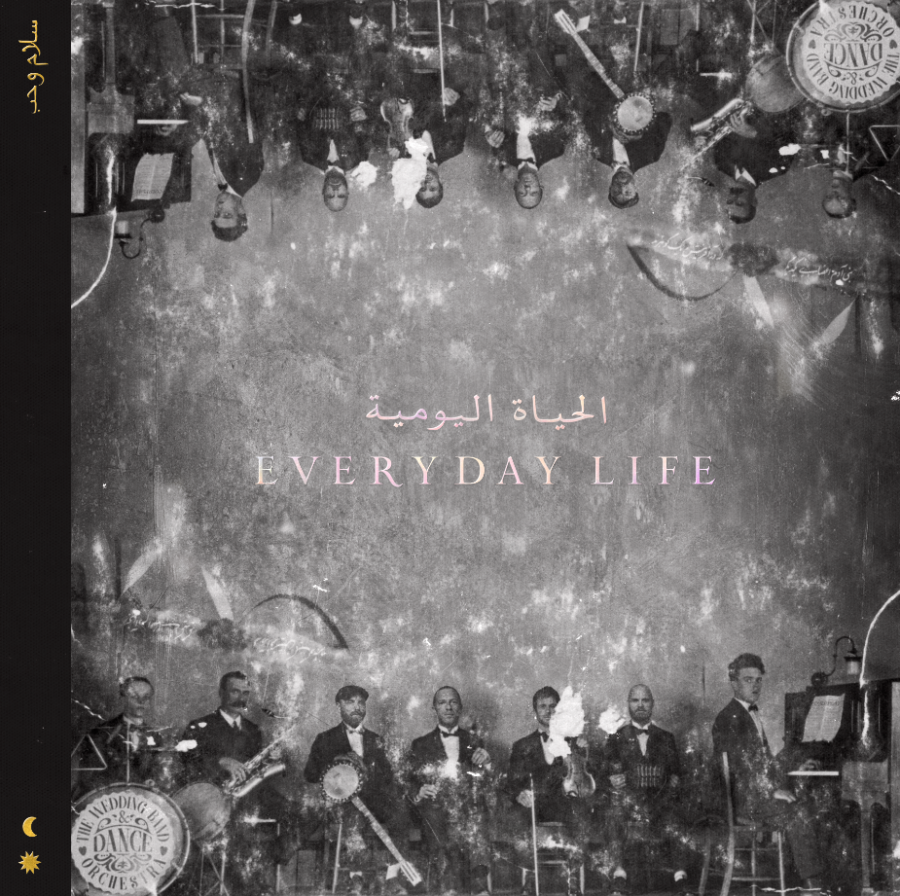The summer months saw large amounts of new material from popular bands and artists. Among this new music was the sixth full-length album from the world-famous band Coldplay. Considering the stature of the British rock/pop group, the release of Coldplay’s newest recording, “Ghost Stories,” was surprisingly both unexpected and unheralded (fans were only made aware of the coming CD when Coldplay quietly put out a video for the new track “Midnight” and later confirmed via Facebook that a new album was on its way). This, in a way, set the tone for the record as a whole, however, as the band forsook their recent orchestra-backed, arena-rock anthems for simpler, more scaled-back tunes.
The new album arrived amidst a flurry of news and gossip about a split between the famous lead singer, Chris Martin, and his high-profile wife, actress Gwyneth Paltrow. The latter first broke the news of their “conscious uncoupling,” a now-infamous term, via her website goop.com, and her diction insinuated that their separation was mutual. However, “Ghost Stories,” in which track after track sports a mellow sound and emotionally pained lyrics, suggests that perhaps Coldplay’s frontman did not always reciprocate his wife’s desire for disunion.
Caryn Ganz of Rolling Stone said that Chris Martin has always been a “trusted emotional shepherd, nudging us to hear the clanging bells, marvel at the stars, glow in the dark, obey our hearts. But what happens when he doesn’t have someone to write all those lush ballads for?” Well, we find the answer to that question right off the bat in the opening track, “Always In My Head,” and the answer is that we see a different, largely unexplored side to Coldplay’s music.
The opener forgoes Coldplay’s usual pattern of kicking off the album with an uplifting or upbeat tone (think “Hurts Like Heaven,” “Life in Technicolor” and “Square One”). Instead, an angelic chorus slowly chants some incomprehensible refrain, before Martin begins singing in an almost-murmur, “I think of you / I haven’t slept.”
Much of “Ghost Stories” follows suit thematically from the opening track. Though not true for the entire album, many tracks are slow (or at least slower than Coldplay’s recent hits) and display its singer’s emotional rawness. In fact, even some of the more happy-sounding songs, like “Ink” and “A Sky Full Of Stars,” still deal with the pain of a conscious uncoupling. In the former, a musical track that evokes images of splashing through puddles or swinging through the Amazon is partnered with a chorus that mournfully states, “All I know is that I love you so / So much that it hurts.” The latter, which has become the album’s biggest single, couples a club dance beat with the defiant refrain, “I don’t care, go on and tear me apart / I don’t care if you do.”
Another theme of this album, however, is experimentation. This should be nothing new to Coldplay fans, as anyone paying attention could recognize how much the band has evolved and experimented with their sound from album to album. This was a different kind of experimentation, though, utilizing large amounts of electronic and vocal effects. One need only to look to the singles off of “Ghost Stories” for an example of this.
“Midnight,” despite being a hauntingly beautiful lead single, was released to mixed reactions due to how radically different in sound it is to anything Coldplay has done. Chris Martin channels Bon Iver by using a vocoder to multiply his voice, and the laser harp solo featured in the song’s outro plays like an ode to Radiohead.
Next comes the more popular “Magic,” which sounds a little like familiar Coldplay, but a lot like British indie-pop band The xx. Finally, the aforementioned “Sky Full Of Stars” was produced by Swedish EDM DJ Avicii, and it shows. The first time I heard the song, I had to check multiple times to confirm that I wasn’t listening to a club remix of a Coldplay original. Side note: this song for me was another “Princess Of China”: by radio pop standards? Good stuff. By Coldplay standards? Forgettable.
Overall, the root problem with “Ghost Stories” is that there are no standout tracks, songs that combine impressive musicality with thoughtful lyricism (which, contrary to snarky belief, Coldplay is capable of). “True Love,” for example, sees Chris Martin at his most heartbreakingly vulnerable: “I’ve lost you now, you let me go / But one last time / Tell me you love me / If you don’t, then lie to me,” but the effect is lost when it’s sung against a Demi Lovato-esque string backing and a wailing guitar solo. Conversely, “Another’s Arms,” with a simple piano and an anonymous solitary alto singing behind Martin, is musically beautiful; however, the lyrics “Late night watchin’ TV / Wish that you were here beside me” read like something tweeted out into the night by an angsty teenager.
However, even though “Ghost Stories” fails to land a punch quite like “A Rush Of Blood To The Head” or “Viva La Vida” did, it is still a good album, in that there are no bad tracks on the CD. Considering the musical variety, the band did an impressive job weaving together a fairly cohesive album that combines elements of its recent ventures into arena pop/rock with its early, acoustic and piano-laden material. The closing of “Ghost Stories” exemplifies this: following the Avicii dance track, the beautiful piano ballad “O” ends the album on a high note, leaving us with the hope that Chris Martin can recover from his emotional pain and the realization that, no matter what phases they may go through, there is a reason why Coldplay is one of the world’s biggest bands.












